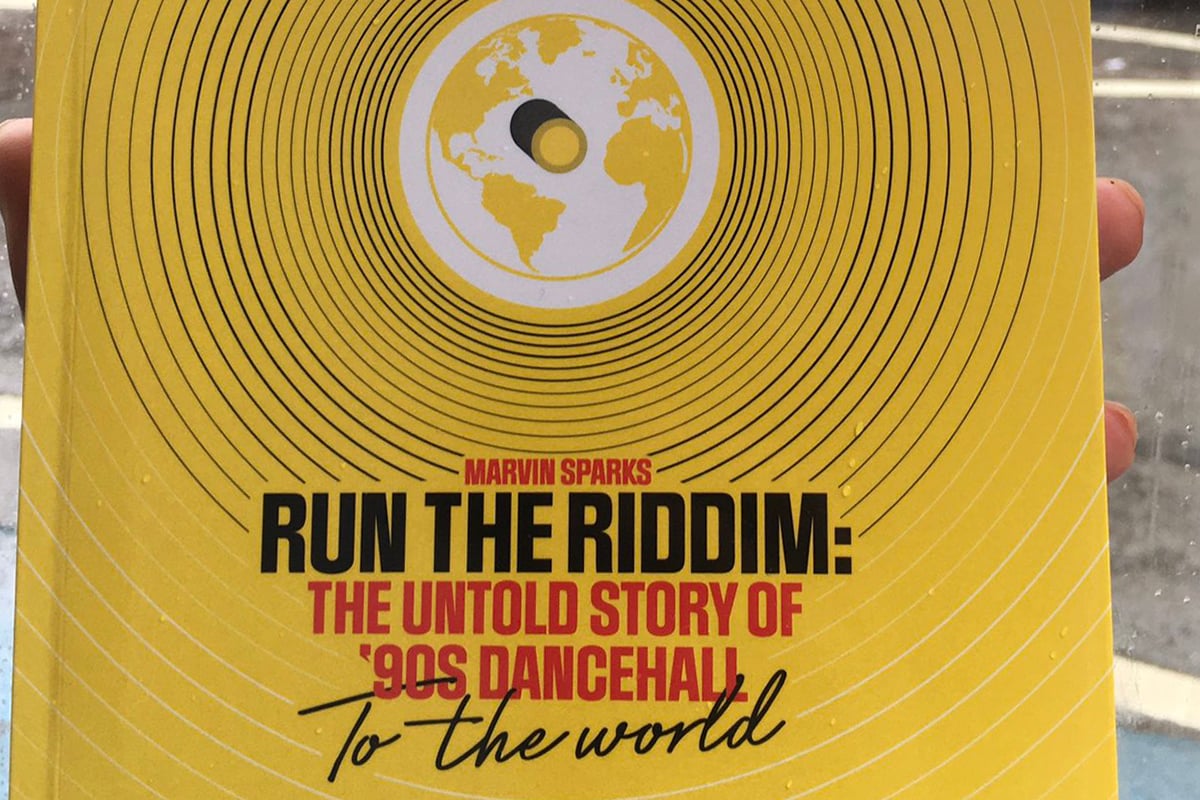Marvin Sparks Talks New Book ‘Run The Riddim: The Untold Story Of ’90s Dancehall To The World’

Since its inception, no decade in Dancehall has received louder ovations or condemnation than the ’90s. Filled with foundational anthems, aesthetics and archetypes, ’90s dancehall music was as much about opulence as it was a clarion call and everything in between. Lining the back panels of these exchanges were the quintessential riddims, cutting-edge sonic mediums that cemented the new genre’s staying power. Everything from slang to choreography was driven by these entrancing arrangements, a testament to the dancehall’s vision and verve.
Widely sampled and revered, the sonic dominance of ’90s dancehall is undeniable. The era is now being elevated with a scholarly spotlight from one London-based author.
In his new book, Run The Riddim: The Untold Story Of ’90s Dancehall To The World, writer Marvin Sparks takes an in-depth look at the origins, highs and lows of the genre through the decade’s most iconic Dancehall riddims and conversations with key figures. “Essentially what I’m trying to do is make sure people understand where 90’s dancehall came from, what shaped it, what it means to the people, how successful it was and its lasting legacy,” he tells DancehallMag from his London home.
A member of the Jamaican Diaspora, and a “lifelong dancehall student,” Marvin’s childhood is chock-full of anecdotes that reveal a healthy obsession with what would become his life’s work. His father “always kept going on about” his 80’s excursions to sessions at Prison Oval and the like, kindling his young son’s fascination with the genre.
By his teens, Sparks was already an avid consumer. “The first dancehall album that I bought, well I begged my dad to buy it actually, was Red Rat’s album (Oh, No.. It’s Red Rat),” Sparks said proudly.
It’s no coincidence his career now entails translating this experience to wider audiences. “To me, [the 90’s] is easily one of the greatest eras of music, and I’m not sure if it’s as widely acknowledged as it should be. We who experience it and know it, love it, but I’m not sure if everybody understands it the way we do,” Sparks said.
Dancehall’s Unspoken Heroes
As much a curator as he is a journalist, Sparks’ desire to “preserve history by getting it from the source” inspired him to highlight “dancehall’s unspoken heroes”, the producers. “Generationally, especially within our cultures as black people, I don’t think we don’t study our history or our greats as much as we should. One of the reasons for this book is that the founders could tell their stories and people could understand where the music came from,” Sparks said.
He continued, “The riddims ran the 90’s and the producers who made the riddims and voiced the artists are the unspoken heroes. I wanted to put the producers at the forefront because we hardly hear from them.”
Over a decade in the making, he describes the passing of Bobby Digital, the instrumental yet enigmatic studio engineer he’d hoped to interview, as a turning point in the book’s journey. The sudden deaths of many of Jamaica’s musical titans — Toots Hibberts, Bunny Wailer, U-Roy and Lee Scratch Perry — within a short span added fuel to his efforts. Sparks noted that while thankfully, their journeys have all been well documented, the same cannot be said for the pillars of dancehall’s heyday, hence the urgency in completing the definitive text.
“I broke it down into three sections; the Origins, the Identity and the Triumphs. The riddims are the inspirations for the chapters. I talk about the dubplate culture, the gun culture, the technological developments, [and] the rise of Rasta in the 90’s. So you get the story behind the riddims, what the riddims represented at the time vs. now, how the culture informed the riddims and how the riddims exploded to the world and translated to people like me that live in London.”
When asked the most memorable of the 30+ interviews conducted with industry players, among the names that came to mind were Cleveland ‘Clevie’ Browne of veteran producer duo Steely and Cleevie, his brother Danny Brownie of Main Street Studio fame, Danny Pepperseed and Claude ‘Weak Hand’ Reynolds.
Currently the tour engineer for reggae crooner Chronixx, Reynolds shared his rise from being an apprentice engineer on Tony Kelly’s Bookshelf Riddim to an in-demand producer working with the likes of Shaggy on his multi-platinum album, Hot Shot. For Sparks, his story was a remarkable illustration of how dancehall changes lives, and highlighted the importance of mentorship, one of Kelly’s strong points.
Though entirely sentimental about the glory days, Sparks is no less appreciative of modern dancehall, with its grimy leanings and ‘traphall’ sounds that’s been shunned by some veterans. Where many see a movement too far removed from tradition, Sparks sees a full-circle moment. “Even back in the 90’s and as you’ll see through the book, you had people at the time that hated what was going on and the new technology of this new thing,” he asserted. “Culture has changed. At the end of the day, technology gives you what you put into it.”
Run Di Riddim is published through Sparks’ own NoLongStories, whose mandate includes “documenting authentic stories” and “diversifying the narrative”. Across 300 pages, he examines the genre’s triumphs & tragedies, dancehall as both a space and sound, and dedicates an entire chapter to the frank, fiery female acts of the day.
What does Sparks hope readers glean about those booming blueprint years? “That [90’s dancehall] is up there with the greatest eras of music,” he stated. “It’s as important as 70’s reggae, 90’s R&B, The British Invasion, Motown, all of them. It’s not just something to make you dance and feel good, it has a culture behind it. If you don’t know about dancehall you’ll learn a whole heap and if you think you know about dancehall, you’ll realise there’s so much you didn’t actually know.”
